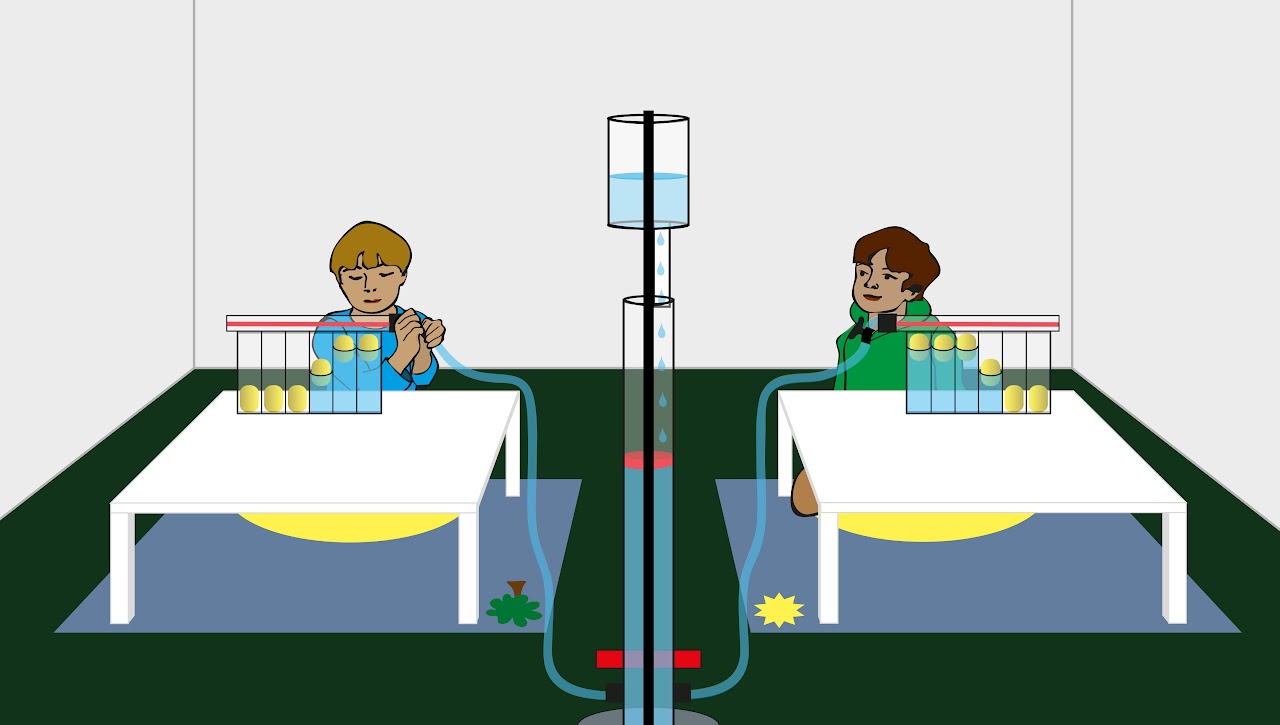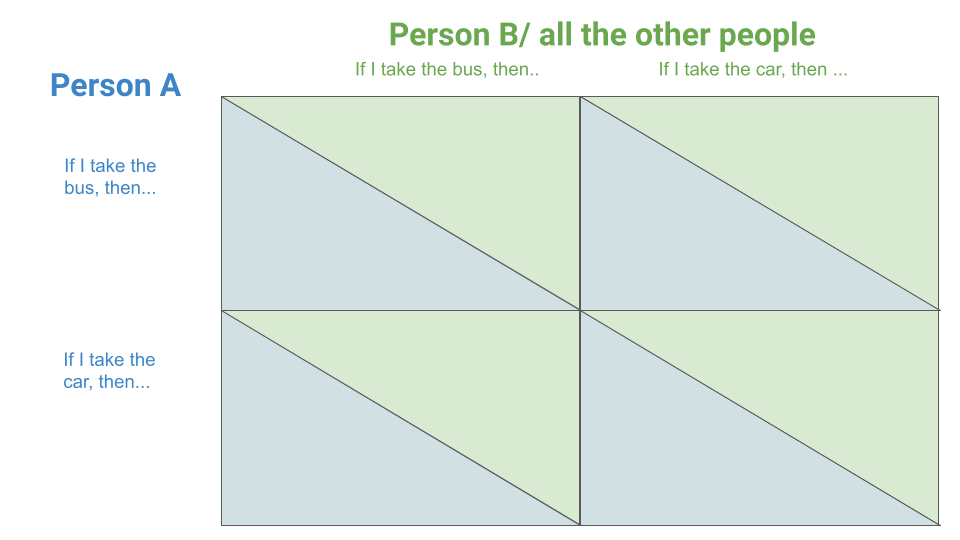
Chimps or children – who is better at sharing resources?
A comparative behavioral research experiment exploring the abilities of chimpanzees and of children to cooperate around a shared resource.
An interactive introduction into concepts of ecology, behavioral ecology, and sustainability with a computer simulation of a simple social-ecological system.
This NetLogo computer model can serve as an introduction to a number of key concepts and processes in ecology, behavioral science and sustainability. The discussion guide also introduces students to the general elements of a NetLogo-Model and the program interface.
It is a model of a simple social-ecological system consisting of just two individuals and a regrowing resource (trees). The two individuals harvest from the trees at a certain rate. They can harvest from the same common resource, or each individual can have their private forest. Students observe how outcomes are influenced by the parameters of harvest level, resource regrowth rate and carrying capacity/maximum tree height, and whether the resource is a common-pool or private resource. Observable outcomes under different parameter settings can be discussed with the whole class, or alternatively, students work individually or in groups using a worksheet.


A comparative behavioral research experiment exploring the abilities of chimpanzees and of children to cooperate around a shared resource.

Students reflect on the causes and consequences of human behaviors in situations of social interactions, and are introduced to the payoff matrix as a helpful tool to represent motivations and outcomes of behaviors.
OpenEvo is an educational innovation project from the Department of Comparative Cultural Psychology at the Max Planck Institute for Evolutionary Anthropology.
Evolve the future of education with us!